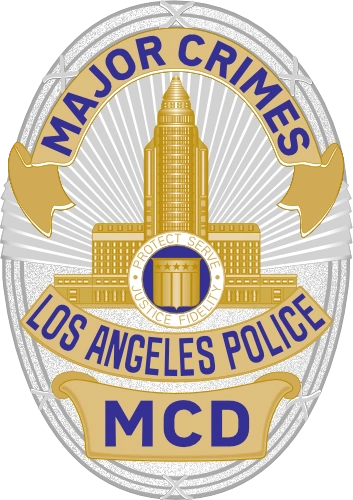| “ | ” |
While Brenda investigates the murder of a doctor who presided over a drug trial, her team learns about an ethics investigation that was filed against her in Atlanta.
The Victim[]
- Dr. Alan Rainey, director of research at a neuropsychiatric institute
The Suspects[]
- Mr. and Mrs. Hammond, the parents of a drug trial participant who died
- Dr. Jerome, psychiatrist
- Dr. Dawson, director of research at Curson Pharmaceuticals
Evidence[]
Closing the Case[]
Brenda's Story[]
Guest Cast[]
- Mark Feuerstein (Dr. Jerome)
- John de Lancie (Dr. Dawson)
- Robin Bartlett (Dr. Leah Rainey)
- Danielle Savre (Gretchen Schille)
- Ellen Bry (Mrs. Schiller)
- Ned Bellamy (Mr. Schiller)
- Larry Joshua (Mr. Hammond)
- Amanda Carlin (Mrs. Hammond)
- Michelle Ewin (Teri)
- Heidi Heller (Teri's Mother)
- Jake Sandvig (Howard Quigley)
- Sam Murphy (Eric Placton)
- Shishir Kurup (Emergency Room Doctor)
- Matthew Jones (Officer Chilton)
Locations[]
Episode Notes[]
- An important feature of the episode is the use of double-blind, multi-phase drug trials. The phases are designed to test various aspects of the drug: its safety (Phase I), its effectiveness (Phase II) and its benefits and sides effects (Phase III). Use of a double-blind is common in studies where the investigators must evaluate patients taking the drug on subjective criteria and/or gather subjective evidence from patients about the effects of the drug. In these studies, neither the patients nor the investigators know who is taking the actual medication and who is taking a placebo (an inert pill, usually made of sugar.) This allows for unbiased evaluation of the medication. Late in the study, the blind is broken, allowing investigators to compare the outcomes of patients who are and are not taking the medication.
- Flynn requests a special master to review the deceased doctor's patient files, which the police cannot do because doctor-patient confidentiality rights belong to the patient. In California, a special master is an attorney who accompanies law enforcement officials when searching the documents of persons whose practice guarantees client/patient confidentiality (i.e. doctors, priests, attorneys.) The purpose of a special master is to protect the interests of the professional and his/her clients. Special masters are drawn from a list maintained by the California Bar Association, and cannot be attorneys practicing criminal law.
- When the president of the drug company threatens to destroy the psychiatrist conducting the drug trial, he shakes it off by commenting he has tenure. Tenure is earned after roughly six years, when an academic's position becomes permanent.
